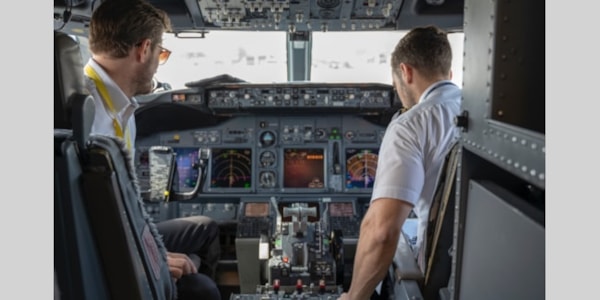ALPA uses FAA numbers to challenge the notion of a pilot shortage

Despite many members of the industry claiming a pilot shortage, the ALPA has released data from the FAA that showed the U.S. is producing a record number of certified pilots. There are now more pilots in the market than jobs available.
According to the data, 9,397 new commercial airline pilot certificates were issued in the last 12 months. This number exceeded any forecast from airline analysts and goes beyond the airline pilot demand. The U.S. has roughly 10 percent more flight instructors than there were before 2020.
“This is good news that everyone in our industry should be celebrating,” ALPA President Capt. Joe DePete said. “The decision to invest in America’s aviation workforce, made in the darkest days of the pandemic, continues to pay off with record pilot production numbers.”
The belief that there is a pilot shortage is met with a rebuttal as the numbers continue to increase. The ALPA asserts that the spread of this misinformation is to weaken pilot training and give pilots lower pay and benefits. Cuts in services and the lack of availability in certain cities are due to profitability within airlines and do not stem from a lack of pilots.
“Pilots don’t make corporate business decisions about what cities to serve. It’s the airlines that make those choices, and it’s all based on profitability and their bottom line,” DePete said. “Pilots are trained for life to get passengers to their destinations safely, and we are as frustrated as the flying public at the airlines’ service cuts, flight delays and cancellations and fatiguing schedules.”
According to the chart, there were 8,115 new ATP-MELs issued in 2022, which is up from 2018 and 2019, before the drop due to the pandemic. The FAA data shows that the U.S. has produced enough certified pilots to exceed airline hiring demands, according to the ALPA. The increased number has also compensated for the retirements in the last decade, the group says.
The growth of certified pilots has come even with increased safety protocols and more extensive pilot training standards. The FAA Airline Safety and Federal Aviation Administration Extension Act of 2010 created new standards for pilot training and safety. This update provided an increase in safety in the industry, largely due to the 1500-hour minimum for pilots.
RELATED STORY: FAA denies Republic Airways request to cut 1,500-hour rule for first officers
Republic Airways requested to make an exemption for the 1500-hour rule but was denied. The FAA Extension Act was in response to a fatal crash and subsequent call to improve safety for the first time in 20 years. This change in safety and training launched a new database, which took 12 years to complete, serving as a tool for airlines to track pilot records to prevent hiring a pilot with a poor record.
Contact
Name: Haley Davoren
, Digital Content Manager
Company: GlobalAir.com
Website: http://globalair.com
Email: [email protected]
Phone: 5024563934
©2022 GlobalAir.com, Haley Davoren. All rights reserved.
Recent Posts
- For sale! Lloyds-backed estate agents Lomond goes on the market | UK News
- Mercure Debuts in India’s Chandigarh Region
- Comment: Now is the time to reflect the excitement felt by our customers
- Heineken investment set to reopen 62 pubs – is your local on the list? | Business News
- Accor unveils its first Handwritten Collection address in the United States







Recent Comments